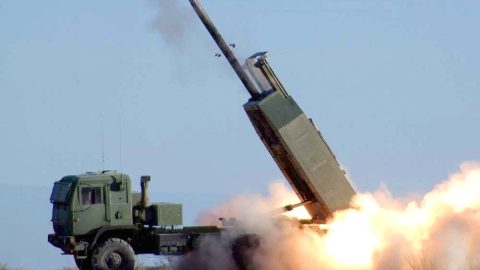There’s increasing evidence that Taiwan’s youngest voters might not be as reliably “pan-green” or supportive of independence-leaning parties or ideas as is often assumed. However, that doesn’t mean they’re suddenly in the “pan-blue,” China-leaning camp, either.
The springboard for this take is a new poll. Earlier this month Taiwan Public Opinion Foundation (台灣民意基金會) (TPOF) found that around 44% of 20-24 year-olds in Taiwan approved of former Taiwanese president Ma Ying-jeou’s (馬英九) controversial trip to China. As this could be seen as a deferential move toward China and it’s often expected younger people in Taiwan are most anti-China, it may seem surprising that the youngest group’s approval levels were ahead of both the national average of around 39% and those of the next age group up, 25-34 year-olds, among whom around 41% expressed approval. While 52% of 20-24 year-olds disapproved of the visit (a majority), the percentage of them who approved was still the second highest of any age group, behind only those aged 45-54, at around 45%.
Standing alone, obviously one poll means little, but some experts see this as part of a trend.
On the one hand, it is seen by Paul Huang, a research fellow at TPOF, as “another data point [demonstrating that] the commonly assumed narrative of Taiwanese youth = predominantly anti-China is no longer the case.” On the other hand, political commentator Courtney Donovan Smith sees the poll as tracking onto a trend of younger voters becoming disillusioned with the governing Democratic Progressive Party (DPP). He points out, for instance, that in a March My-Formosa poll, “the 20-29 age bracket had the highest negative and lowest positive feelings towards the DPP,” while 30-40s show the most support.
These two takes aren’t incompatible and can perhaps come together slightly in Donovan Smith’s explanation of his. He tracks declining support for the DPP among those in their 20s onto a more general leaning toward “non-partisan” politics, with the main evidence for this being support for the Taiwan People’s Party (TPP) rising among the group, ahead of the China-leaning Chinese Nationalist Party (KMT). The TPP has positioned itself as an antidote to the blunt “partisan” politics of the KMT and the DPP, proposing a coalition government and a national convention to reach a consensus on dealing with China. The March My-Formosa poll backs up the idea of this major 20-29 support by showing that the TPP’s Ko Wen-je (柯文哲) is by far the the group’s favorite candidate for the upcoming presidential election. He carries 35.4% of their support, 15.1% higher than the average across all age groups.
Under this “non-partisan” framework, generational ambivalence toward Ma’s visit wouldn’t represent some great move toward being “pro-China.” Rather, it would be the sentiment of a group that is capable of containing a sporadic range of viewpoints, not tied to party loyalty or even a “pan-green” or “pan-blue” camp. Large numbers approving of Ma’s visit to China didn’t stop even larger numbers approving of President Tsai Ing-wen traveling to the U.S., for instance. This also lines up with a generation that, in the same My-Formosa poll, believed too much importance was attached to the U.S. the joint most of any group (51.8%, tied with the over 70s), while simultaneously having the most negative view of the Chinese Communist Party (88.3% against the 30-39’s 87%.) It seems like it doesn’t want to feel like it’s on anyone’s side.
But however it might be expressing itself, there is an important second question here: Where might this (still slightly hypothetical) split between those in their 20s and the loyal DPP-ers in their 30s come from?
The independence-leaning DPP’s last national election victory came from a surge in youth support and an obvious conclusion was that this would continue to grow as the “naturally independent generation” was followed by more. So why hasn’t it happened?
Two potential explanations lean in on cultural difference. Donovan Smith places an emphasis on the youngest generation not having taken part in the 2014 Sunflower Movement, where hundreds of student protesters occupied Taiwan’s national legislature to oppose a free trade agreement with China. The idea here is that that generation learned that partisan political fights could be won, meaning they continue to buy into political action via the DPP, whereas the next generation down has no such experience (and presumably also see the DPP as part of the establishment responsible for the world as it is now).
Another popular idea focusing on a different cultural thread is that the youngest generation of voters is “very online” and that involves being on Tiktok and Douyin (抖音), the Chinese-exclusive version of TikTok, a lot. The implication here is that these youngsters are being drawn in by Chinese culture and their politics might be following, but we can also take this as part of a trend of this group not getting their news as much from traditional media — which lines up in pan-green and blue camps.
Both of these are objectively identifiable trends. But an alternative view is available. That is: That there are material differences between the two generations too.
Taiwan’s under 30s have had significantly less disposable income than those in the age categories above them. Taiwan’s minimum wage, which entry-level positions are most likely to offer, has consistently remained massively behind South Korea’s, which has similar household expenditure and GDP per capita to Taiwan. Taiwan’s overall unemployment rate is 3.56%, as of government statistics for March, versus 11.8% for 20-24s and 6.24% for 25-29s. This is another clear gap between the over 30s, who sit right around the national average at 3.74%. At the same time as all this, the average age for first-time homebuyers was 30 to 35 in the first quarter of 2013, but for the same period last year it ranged from 35 to 40, according to data compiled by the Joint Credit Information Center. So that ideal is moving further off into the distance for the younger generation.
In other words, an obvious material gap has and is forming between the youngest group of voters in Taiwan and even the cohort directly above them. And maybe that accounts for why they’ve had enough of what either of the two parties who have governed the country for decades has to say to them, as much as the jokey five-second videos they watch on their phone?
If that is the case, it’s actually reminiscent of another trend in the same direction. A Taiwan Public Opinion Foundation poll in December found that among Taiwanese adults, 73.2% supported extending military service. But among the youngest demographic group of 20-24s, 37.2% said they opposed extending the military service, and only 35.6% said they would support an extension. A National Taiwan Defense Institute poll this month found the same trend, albeit on a smaller scale. It’s almost as though they know it’s their bodies on the line, and their earning potential limited by the decision. In short, it’s almost as if they know that they have different material interests to the generations that came before them.
Note: The TPP has positioned itself as a non-partisan, pragmatic, neutral party. This article isn’t meant to endorse that view (what is neutral?) It’s only agreeing that that impression may inform younger voters’ choices.
Image: Photo by Lisanto 李奕良 on Unsplash









Leave a Reply